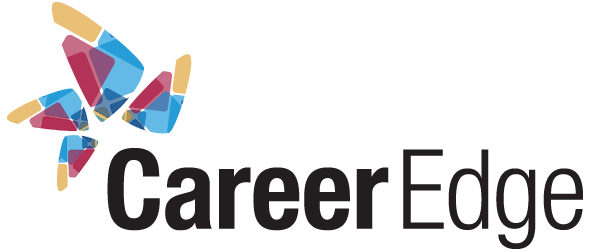[This week’s blog comes from Ashley Haroutunian, a career consultant at Brock University!]
I lacked career direction during my undergrad studies in psychology. I didn’t know what to do after. When I graduated, my only real work experience was in hospitality, but that’s not where I wanted to stay. When I learned a friend of a good friend ‘recruited’ (at the time, I didn’t know this existed), I decided that’s what I wanted. So, I drafted my resume, searched online for entry-level recruitment jobs, submitted my resume many times – and waited.
Nothing.
After what felt like an eternity, someone called and invited me to my first-ever “professional” job interview. I had a great conversation with the hiring manager, and I followed up by sending her a handwritten thank-you card.

Ashley Haroutunian, Brock University career consultant
I didn’t get the job. I submitted more applications. I waited more – a lot more.
A few months after that first (and only) interview, I received an unexpected phone call on my 25th birthday from that hiring manager I interviewed with. When a contract position opened – thanks to that thank-you card still on her desk – she told me I was the first person who came to mind.
I accepted!
Though this all transpired back in 2008 (crying a little on the inside as I type this and realize I graduated more than 10 years ago), my story illustrates some timeless truths about the new grad job search.
People can be your most valuable job search resource.
Think about the important role people played in my story. If not for my good friend telling me about his recruiter friend, I might never have pursued that career path. I didn’t even know that recruitment was a thing at the time. If not for the hiring manager calling me about the contract position, I wouldn’t have known that the opportunity existed. You can learn SO much through talking to people during your job search.
How can I put this principle into practice?
Try these strategies. They’ve all worked for me, or for students I’ve worked with.
Have casual career conversations or arrange information interviews with people who have jobs you want, or work for companies you would love to work for. Check out this article: https://students.ubc.ca/career/career-resources/informational-interviews
Put yourself out there. Tell everyone you know that you’ve just graduated from X program and you’re looking to work in Y type of job or industry. This helps ensure that they think of you if they learn about a suitable job opportunity – especially one of those elusive “hidden job market” opportunities (yep, it’s a real thing). Check out this article: https://careers.workopolis.com/advice/network-your-way-into-the-hidden-job-market-before-you-really-need-to/
Remember it’s not just about who you know, but also who THEY know. People can help introduce you to other people who can help you. Think Six Degrees of Kevin Bacon. If you’re too young to know who Kevin Bacon is, or what I’m talking about, please consult google. Then go watch Footloose (no, not Fortnite…)
You already know more people than you probably realize, so sit down and make a list of absolutely everyone you know and ask yourself: a) could they help me with my job search, or b) could they connect me to someone who could?
If you’re applying for a job at a company or organization that you have even a weak connection to someone who works there, ask them for a formal referral or an informal recommendation. All other things being equal, hiring managers would rather interview someone a fellow employee knows and recommends than an unknown person who is nothing more than an application to them.
But what if I feel awkward and intimidated?
It’s natural to feel this way about asking others for help. However, there are two important things to keep in mind that can help you feel better about the whole concept.
The first is knowing that people actually like helping others. Helping others has a way of making people feel good. Professionals are no exception to this. During my time with Brock University’s Co-op, Career and Experiential Education team, I’ve seen numerous professionals take time from their busy schedules to help our students. Why? Because they actually want to help.
The second is realizing that many of the people you’ll ask were probably in your shoes at one point and can relate. Even your dream company’s CEO started somewhere and wouldn’t have achieved what they’ve achieved without asking others for help. People are willing to help because the challenges you’re facing resemble the challenges they’ve faced early in their careers.
How important is it for me to thank people?
As you work on the people element of your job search strategy, remember that they’re more than resources. They’re also people. When someone helps you along the way, thank them.
Showing gratitude is simple, yet powerful. A sincere thank-you email or card can set you apart from the crowd of jobseekers who don’t bother. It can give you access to those hidden opportunities. It can also establish a new professional relationship, or even land you a job.
Okay, this all sounds great, but where do I start?
Trust me, I know. Talking to people and asking for their help with your job search can seem scary at first.
Try your friendly college or university career centre as a starting point. The people who work there (like me!) are usually the opposite of scary and you might be surprised at how just one conversation can help calm your job search jitters and set you up with some great strategies for success.

